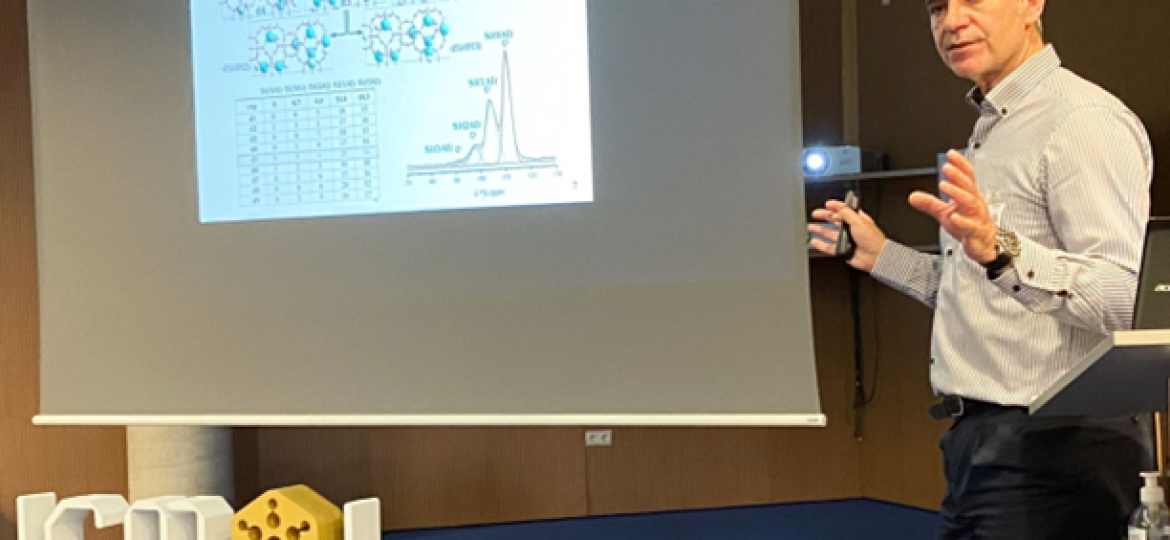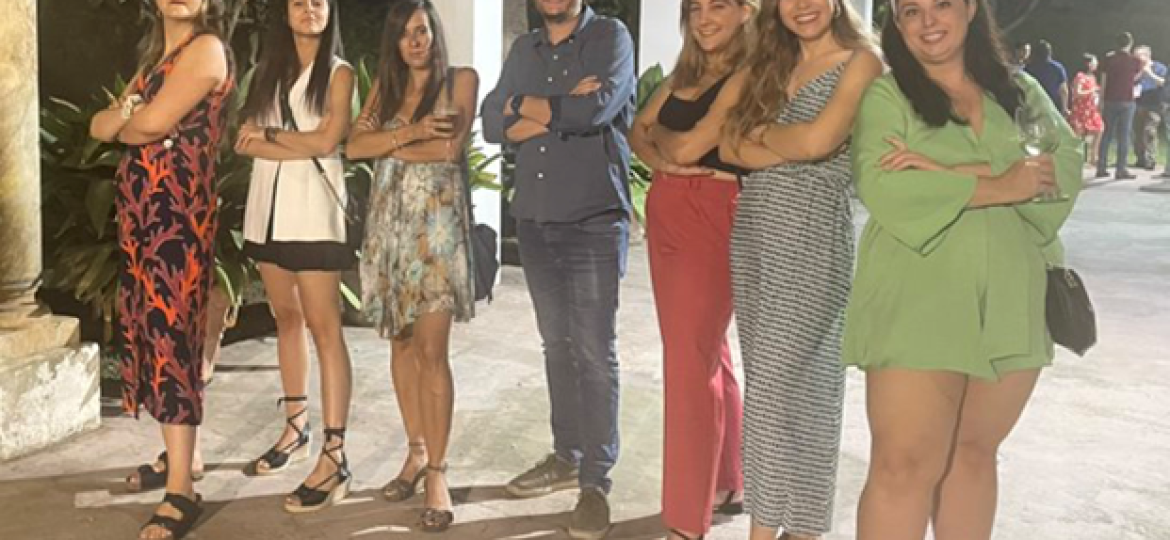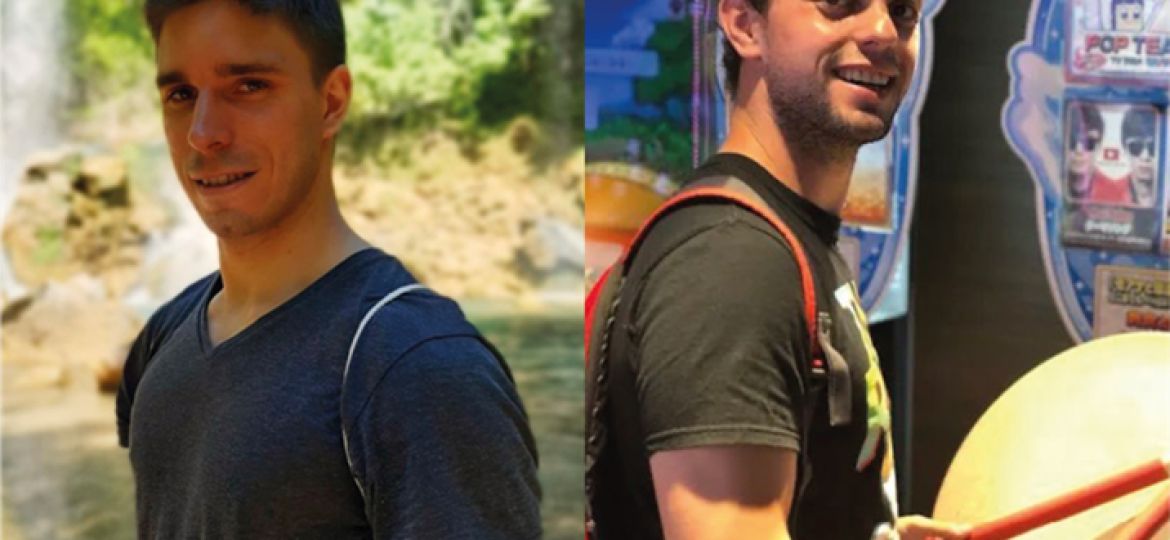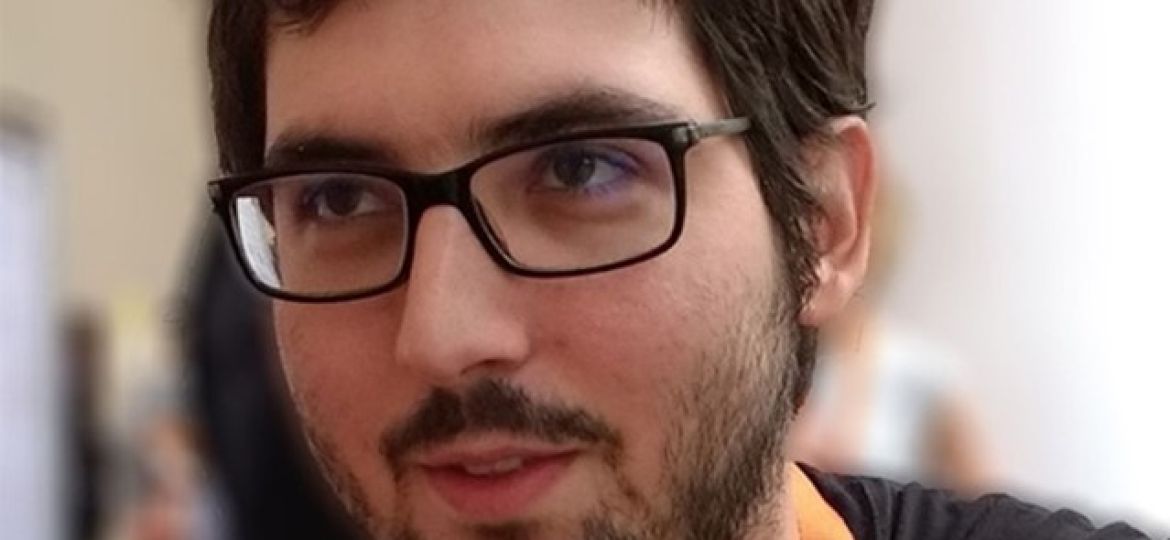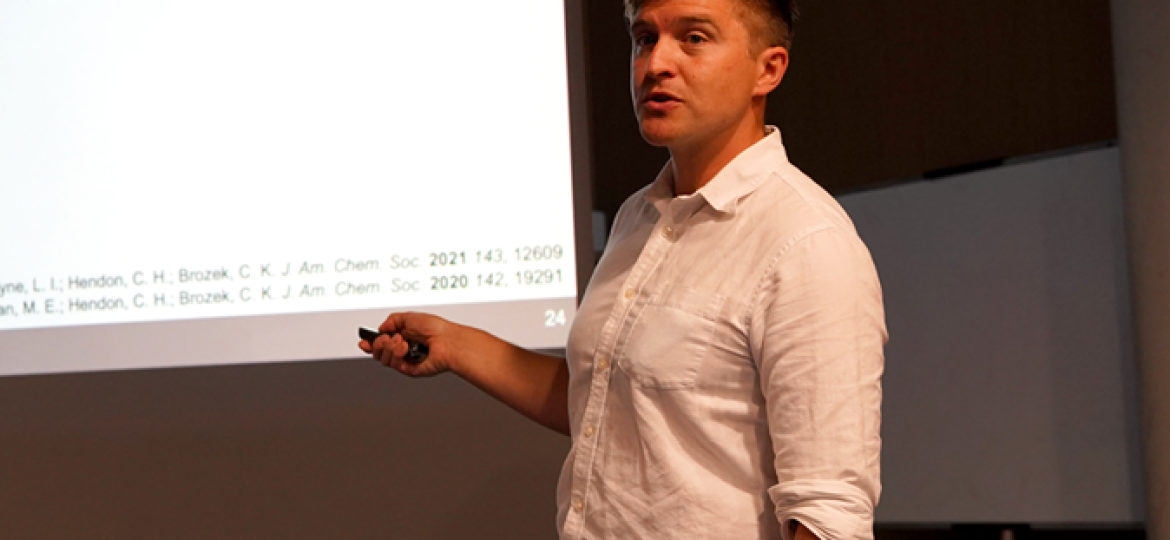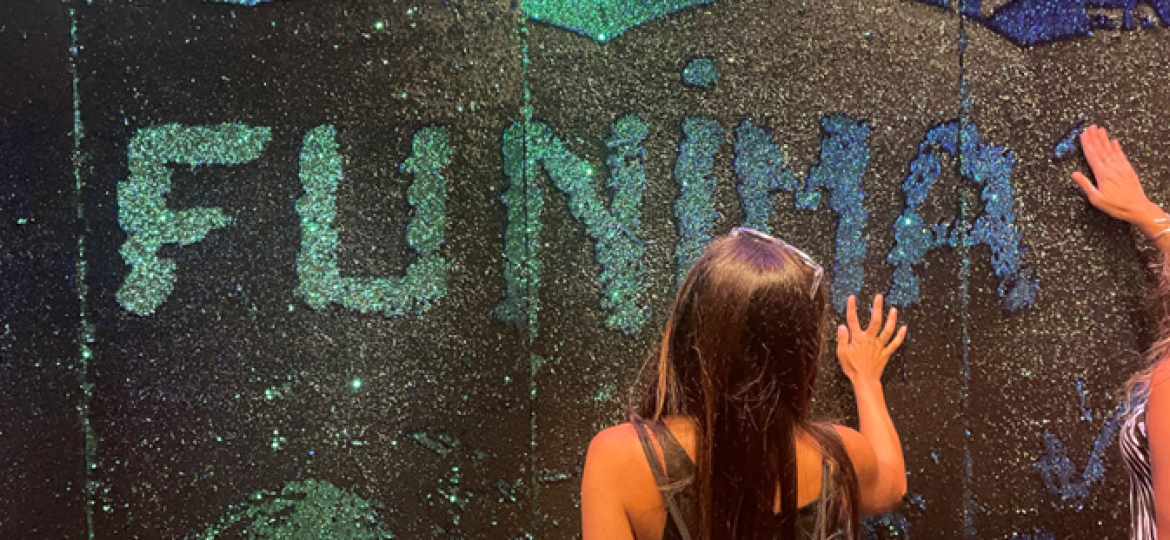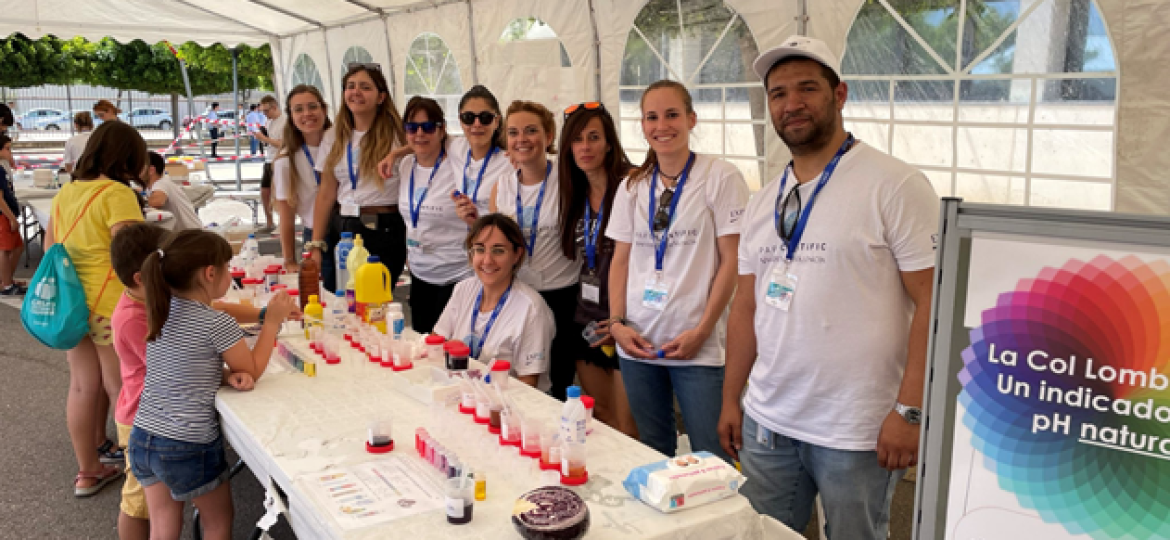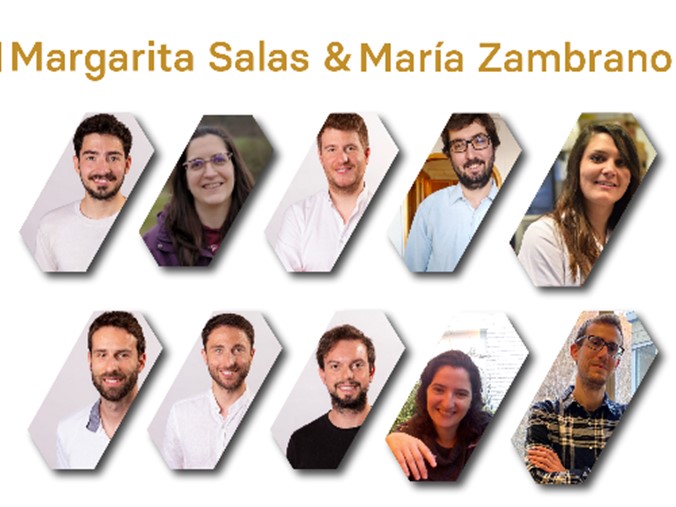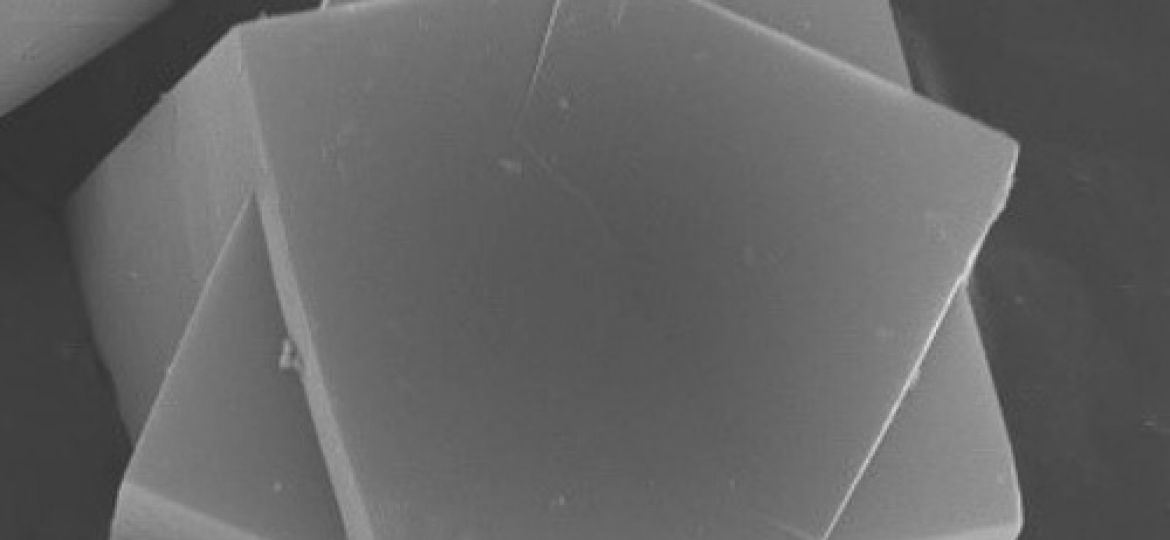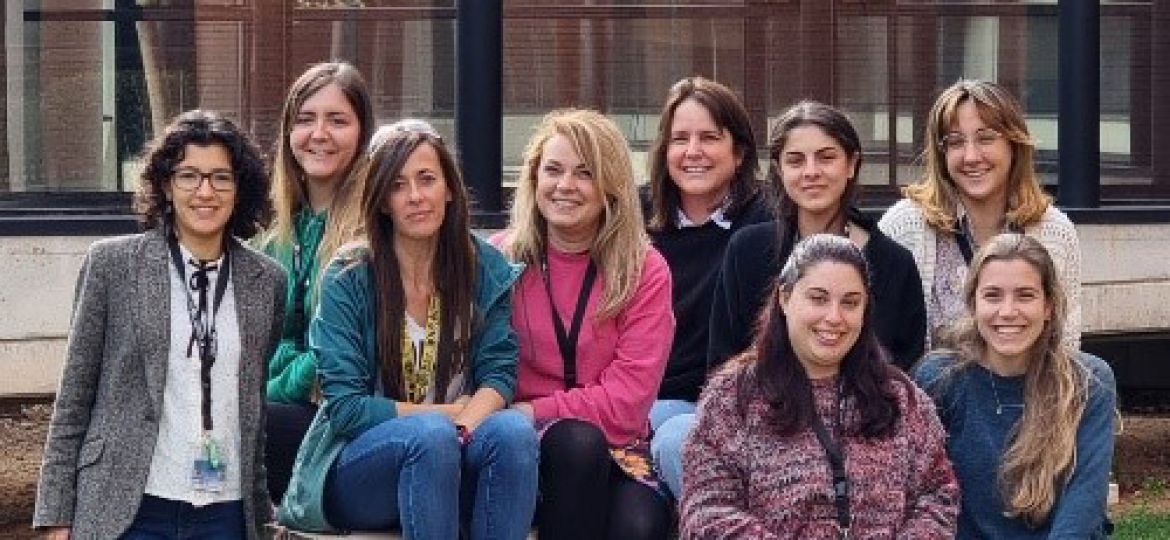Germán Sastre, tenured scientist at the Instituto de Tecnología Química (ITQ), visited us to discuss on the computational approach to the analysis and understanding of host-guest interactions in soft and hard matter. Thanks for the visit!
Funimat was very actively present at the meeting with the organization of the symposium in Porous Materials (Carlos), oral lectures (Elena, Natalia & María), poster presentations (Belén, Carmen & Ana) and general organization (Violeta, Clara & Sonia). It was great to meet all colleagues in person again!
Javier Castells and Javier López (aka ‘Los Javis’) have been awarded APOST Fellowships from the Generalitat Valenciana to continue their academic careers at the University of Birmingham (UK) and the University of Kyoto (Japan). Congratulations!
Víctor Rubio Giménez has been awarded a fellowship of the CDIGenT program of the Generalitat Valenciana’s GenT Plan for the return to centres in the Valencian Community of talented researchers who have already gained international experience after his postdoctoral stage at KU Leuven. Congratulations Víctor!
Carl Brozek, tenured Associate Professor at the University of Oregon, visited us to reinforce the links between our groups, share time with all team members and present the last advances of his team on understanding conductivity and dynamic bonding in nanoscale MOFs. Thanks a lot for the visit, Carl!
Funimat was present at the ACS Symposium held in Chicago. Natalia, Sergio and Carlos presented our most recent results in the synthesis, processing and engineering of titanium MOFs in symposium dedicated to MOF chemistry whereas Neyvis participated in the Catalysis and reactivity symposium.
After 2 years of COVID suspension we were looking forward to participating in the XIV edition of Expociencia. Close to 50% of the group (Eloy, Natalia, Violeta, Carmen, Clara, Neyvis, Ana and Belén) prepared new activities to approach chemistry to a very young audience.
Víctor Rubio and Javier López have been awarded Margarita Salas and María Zambrano Fellowships from the Agencia Estatal de Investigación to continue their academic careers at the Katholic University of Leuven (Belgium) and the University of Kyoto (Japan).
Our students have created a new Instagram account. With the goal to share their everyday lab life, you will find lot of different content: from new MOF structures to lunch breaks and fun times together. Follow us on @funimat_lab
FuniMAT is formed by mainly women. On the 8th March 2022 they reunited to stand up together for equality and celebrate International Womens Day. We are very proud of the sense of sorority that exist in our group.

